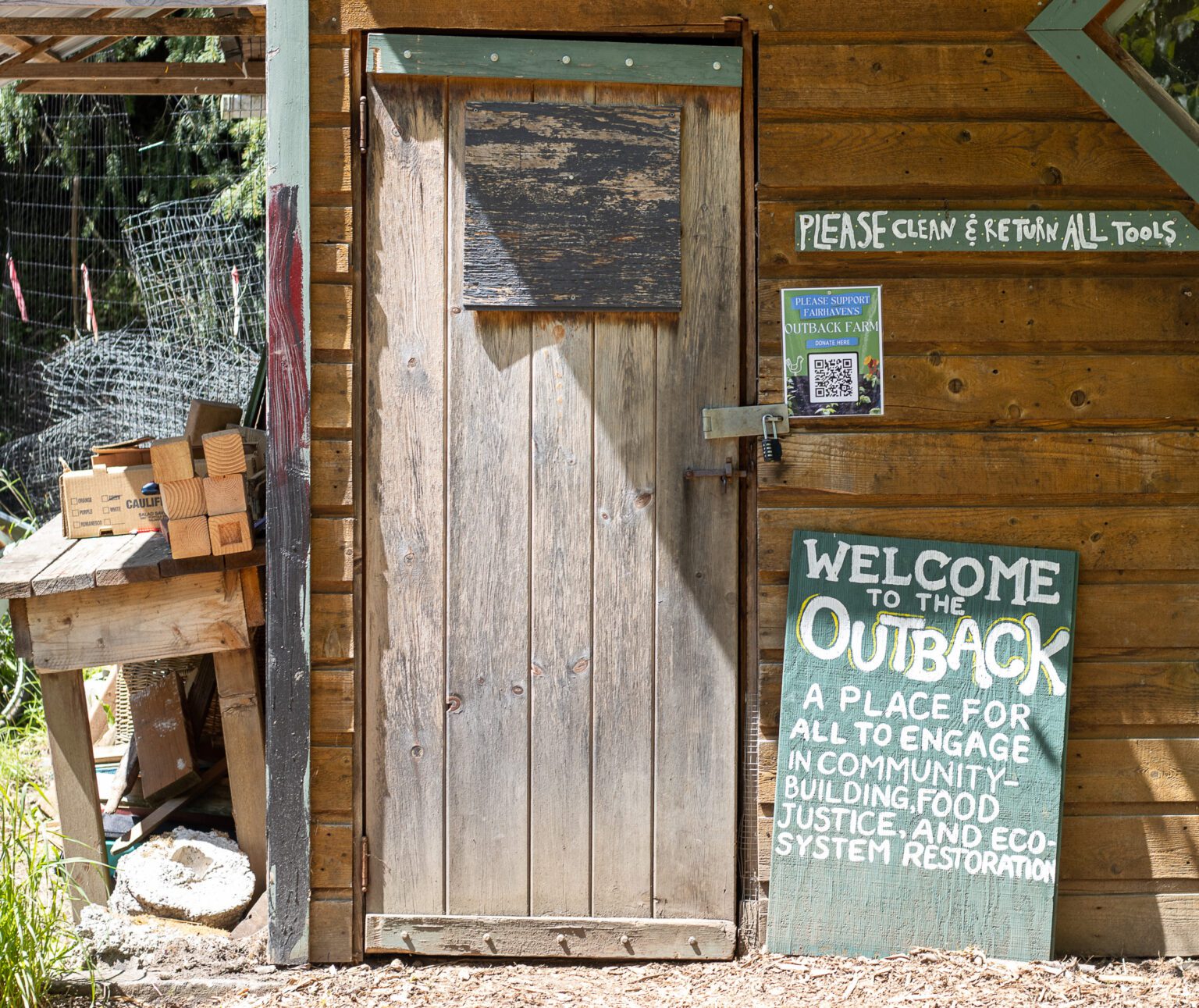Nestled between the Buchanan Towers’ dorms and Fairhaven College on Western Washington University’s campus is the Outback Farm. This 5-acre space celebrated its 50-year anniversary this weekend, attracting many alumni back to the farm to reminisce about its lengthy history and admire its many changes over the years.
Jeff Hammarlund fondly remembers his time at Western, being part of the first full graduating class of Fairhaven College in 1972. Hammarlund’s version of the Outback was nothing but a large field, which students had just started using for farming since it had no other official use at the time.
“It was a different era,” Farm Manager Terri Kempton said. “There was no one complaining from the university, so students brought pigs and goats and started milking them.”
Eventually, the university wanted to turn the space into more parking lots and buildings, Hammarlund said. However, thanks to the actions of the dean, Dan Larner, the bulldozers were stopped.

“When the university planned to basically turn this into more buildings, [Larner] was amongst the people who stood up to the bulldozers to prevent them bulldozing this down and taking it over,” Hammarlund said. “That was a risky thing for an administrator to do.”
Now, 50 years later, the Outback is a fully-operational farm and functioning wetland ecosystem, Kempton said. Since the start of the pandemic, the farm has focused much more on food insecurity and justice in Bellingham.
“We did a couple of impromptu, pop-up food pantries and that became, over time, more institutionalized,” Kempton said. “The university put on weekly food pantry pop-ups during COVID, so for 14 months straight we did that. And, of course, we have 60 community garden plots here, so we were still able to have students during COVID come out and garden in their plots and grow their own food too.”
Currently, the Outback produces an estimated 1 ton of food a year. However, the farm does more than just produce food, it is also a place for experimentation and learning, Kempton said.

“It is a source of food for a lot of people but, of course, our main job here is that this is a place where people can learn,” Kempton said. “This is an experimental, experiential farm.”
The farm offers year-round classes to enhance farming skills as well as many independent student projects.
During the 50-year celebration, there were guest speakers who spoke to participants about a wide range of topics, from honey to food justice, ending on Sunday with live music.
“This little pocket of campus has sparked such passion in people,” Kempton said. “We have folks from the mid-1970s and 1980s, where this was a turning point in their life. This was a pivotal experience that they still cherish. And so, they have made the journey here to come together to see old friends, to reconnect and to be in this place again.”
For more information, visit fairhaven.wwu.edu/outback-farm.




